What You Need To Know About Social SEO For SMBs
Social media SEO refers to how social media activities can influence your search engine rankings and traffic. It is a hot topic in the digital marketing industry, and for good reason.
However, it is essential to note that your social media presence does not directly impact search ranking. Links shared on social media sites do not directly contribute to your search engine ranking.
Nevertheless, online brands can benefit hugely from social SEO. This article will explore how social SEO works and why your business should not ignore it.
How Do Social Media and SEO Work Together?
Social media offers an immediate way to improve your presence and engage your target audience. You can also build brand recognition through social media marketing. Brand recognition can increase branded searches, boosting your organic rankings.
Social media engagements can also create signals that may inform search engines that people are engaging with your content. These are called social signals.
For example, if people need information on finding an LLC and someone may come across a piece of content on social media about how to find an LLC in North Carolina. They can then proceed to share it with their followers. The shares, likes, and comments can create social signals around that article, which may ultimately boost its performance on search engines.
The graphic below illustrates the cycle through which social media and SEO can work together:
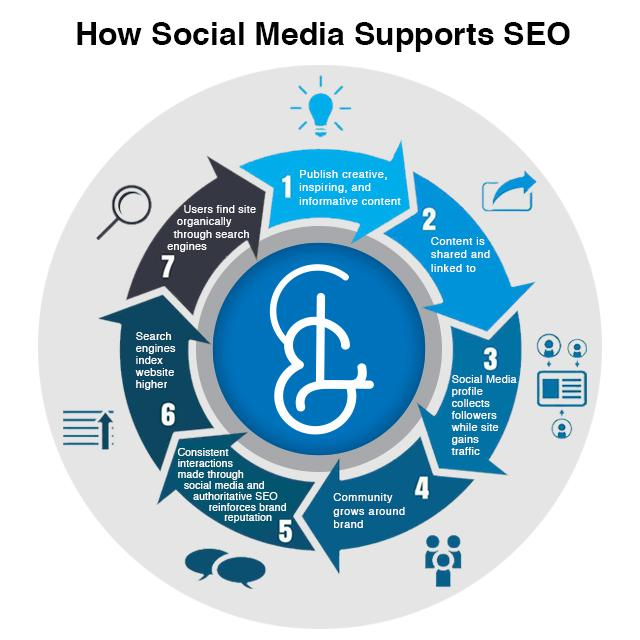
Finally, social media exposes your content to other editors and publishers. People who find your content valuable might reference it from their own websites. Therefore, a great social media campaign can attract high-quality links to your content.
A nice example of the power of social media in generating backlinks is from the travel blogger Adventurous Kate.
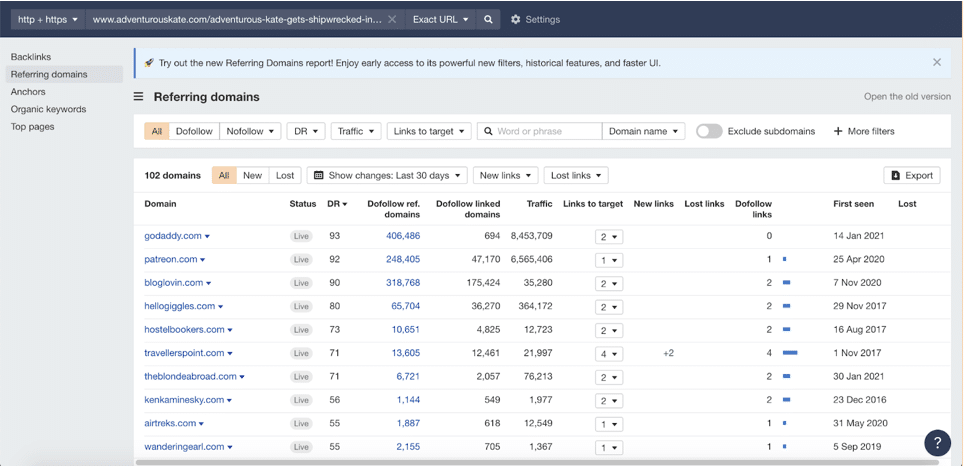
She wrote a blog post recalling her experience of being shipwrecked in Indonesia. The blog soon became viral on social media. As a result, many websites covered the story and linked to her blog.
There are many similar examples I can point to. For example, Rand Fishkin’s article about no-click searches on Spark Toro was a big success on social media. The target audience found the research engaging.
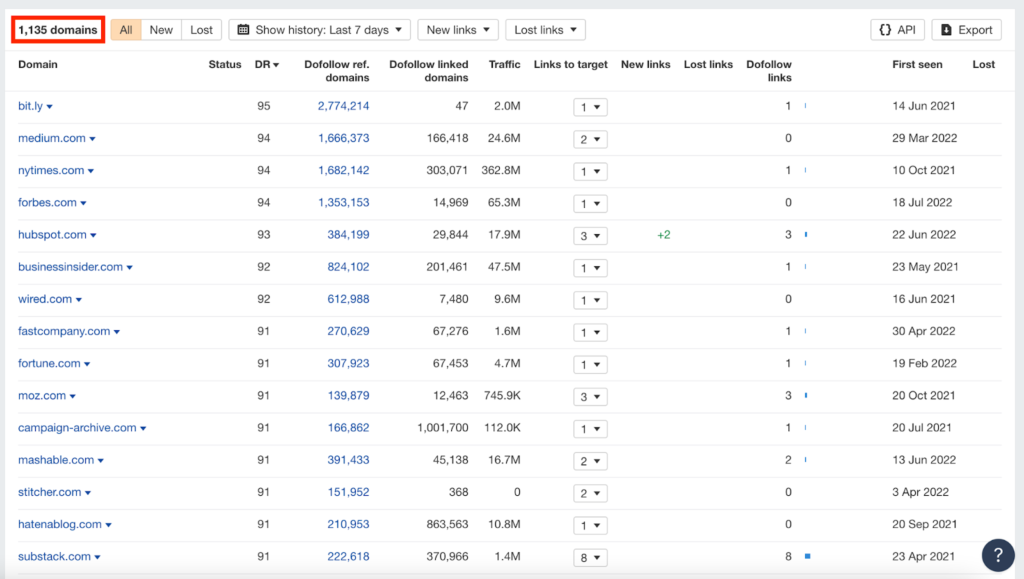
Many journalists and publications have referenced the article. The page has links from 1,135 domains. Many are authority sites like Hubspot, NY Times, Fast Company, etc.
All of those strong links boosted the site’s authority.
Why Is Social SEO Important For Your Business
Social SEO is crucial because it can help you reach a wider audience.
Sites like Facebook, Twitter, and Pinterest allow you to market your business to people who may not have heard of it. That is especially true on social media platforms that allow users to share links and content with friends.
For example, if you have a website about pet care and someone likes your post on Facebook about how to care for a husky, that post might also appear on their friends’ news feeds. That creates a viral effect that can result in more people learning about your site and becoming customers.
Finally, social media gives you access to real-time data about customer interest in what you’re offering. That can help you decide better what products or services to provide next (or how much inventory to carry).
If you’re not using social media, here are more reasons to start and how it will benefit your business.
4 Reasons Why Your Business Needs Social SEO
Social SEO may not be a direct ranking factor, but it’s still instrumental. Your brand can benefit from social SEO in the following ways:
1. More Traffic To Your Site
Achieving high search rankings for your site can be challenging, especially if it’s a new site. You’ll need to identify the best keywords for SEO, build backlinks, and start ranking. It usually takes time to generate results.
Social media provides an alternative way to boost page traffic and validate content quality. The critical part is creating content that people find engaging.
You can create engaging social media content like excerpts of your articles or video clips. You want content that piques users’ interest and entices them to visit your site.
That’s why a small business like Mr. Handyman is always keen on sharing tips and their work on social media.
Consistency is also critical. Consumers who see consistent quality content on your social profiles are likelier to follow your account and visit your site to learn more.
2. Appears In Search Results
Social posts and profiles appear in some search results.
Social profiles tend to appear in the search results whenever users make a branded search. The search results will feature some recent social media posts alongside the profile.
Check out the example below of the search results for the query “bag for girls”
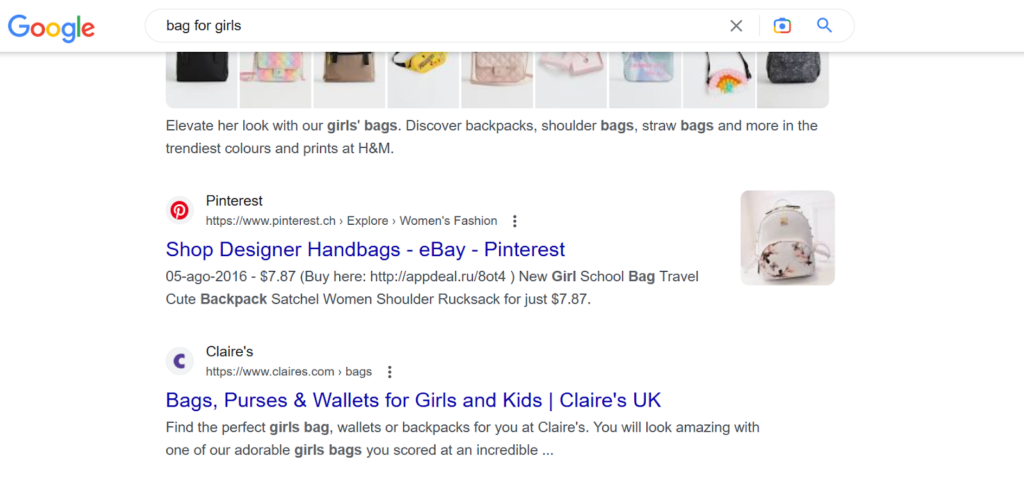
Google brings results from social media platforms like Pinterest because it deems them necessary to the search query.
In most cases, it will also index and show some of the latest social media posts. For example, the search query below shows social media posts that went live only a few minutes prior.

Now, you may be wondering how does this benefit my business? Well, for starters, it supports your brand reputation.
When users search for a brand, they’d expect to see lots of information about it. Seeing links to your social media profiles contributes to supporting your legitimacy. Moreover, it gives the users more options for contacting your brand.
3. Boosts Branded Search
Branded searches are search queries that include a brand name or branded keyword. For example, “Salesforce CRM” is a branded search.
Also, the Google search query below counts as a branded search even though it does not include the brand name Apple. That’s because “iPhone” is a branded product.
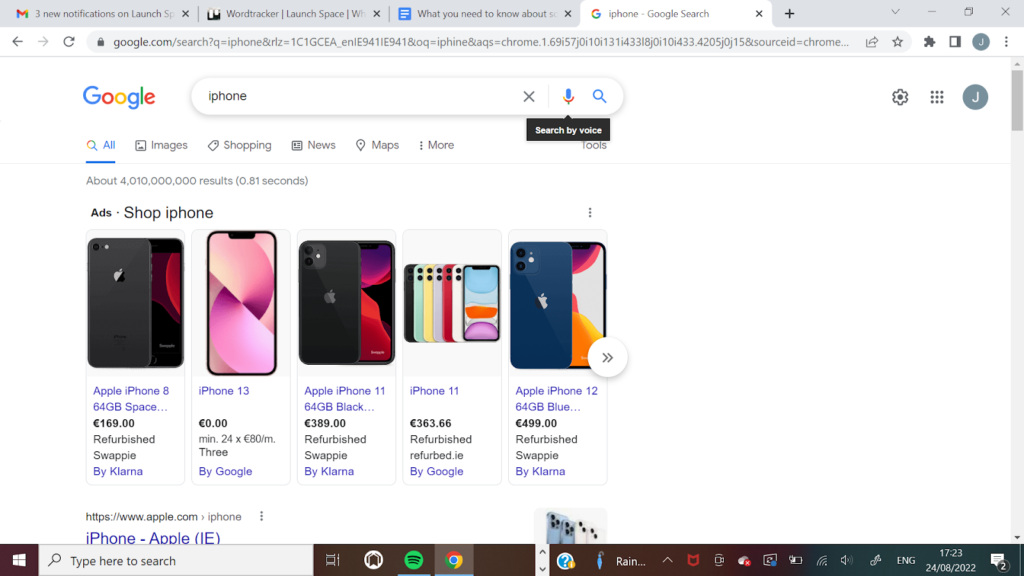
Social media campaigns help to familiarize your target audience with your brand. If social media users come across your content and enjoy it, they will probably follow your account. And every time you post new content, it will appear on their feed. Over time, if they continue to engage with your content, their interest builds.
As consumers become more invested in your content, they naturally want to learn more about your business. This is where the branded search comes in. Now that they know your brand through social media, they will search online using your company’s name or product.
Apple, as mentioned above, is a perfect example. They have loyal customers who will search directly for their products. For example, when buying a new phone, many consumers search for an iPhone or go directly to the Apple website instead of browsing other options.
Branded search helps search engines associate your brand with the product in question. For example, they’ll start associating “Salesforce” with “CRM.”
Over time the brand may even start ranking for relevant non-branded searches due to this association. That’s something you want to focus on when developing your marketing strategy.
Branded search also indicates another significant ranking factor—search intent. Search intent refers to the purpose of a user’s search. A branded search shows the user wants to get information about or buy from a specific business.
4. Build Your Brand Authority
Effective social SEO builds brand authority. Brand authority is the degree to which your company is seen as a trusted source within your market or niche. You have to build it up over time through consistent performance.
As you accumulate years of reliable performance, you build trust with consumers. Your target audience will start seeing your company as a leader within your market.
For example, Hubspot is a trusted source of information in digital marketing. This comes as a result of consistently creating high-quality, valuable content.
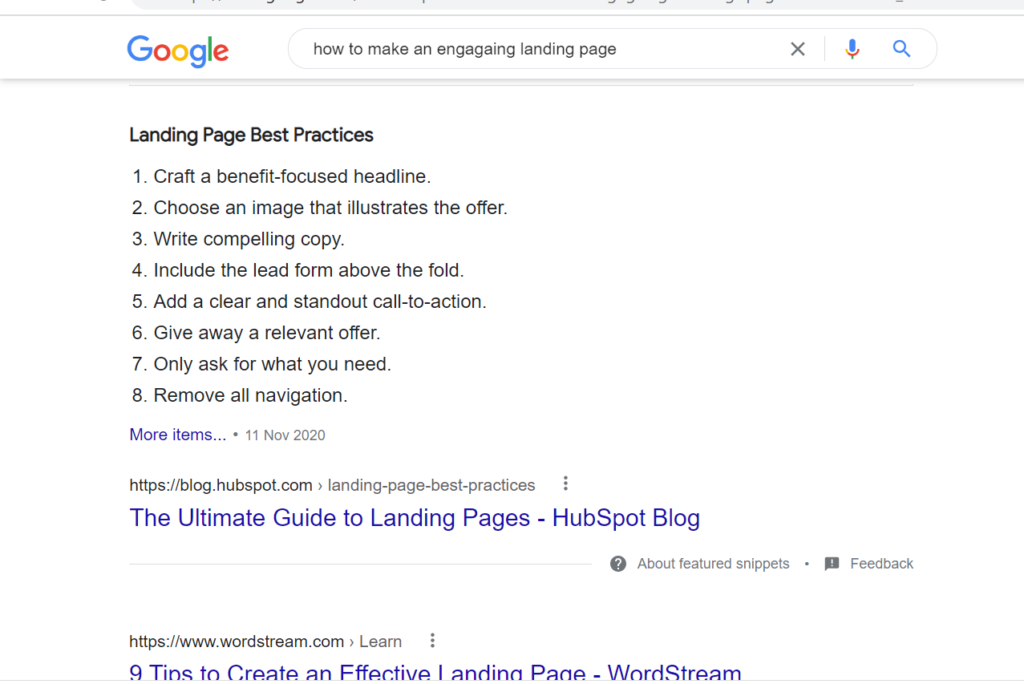
The value of building this brand authority is seen in search results like the screenshot above. Hubspot often appears prominently in results for search queries like the one above.
Consistently posting original content on your social profiles is an excellent way to build brand authority. However, the content must provide value to build trust with your audience. The combination of consistency and quality is what builds authority.
Blogging is an excellent way of building brand authority. Many blog ideas allow you to demonstrate your knowledge within your industry. However, for this to work, you must effectively promote your blog posts.
As shown in the graphic below, social media is the most popular way of driving traffic to your blog. This once again highlights the importance of social media in building brand authority.
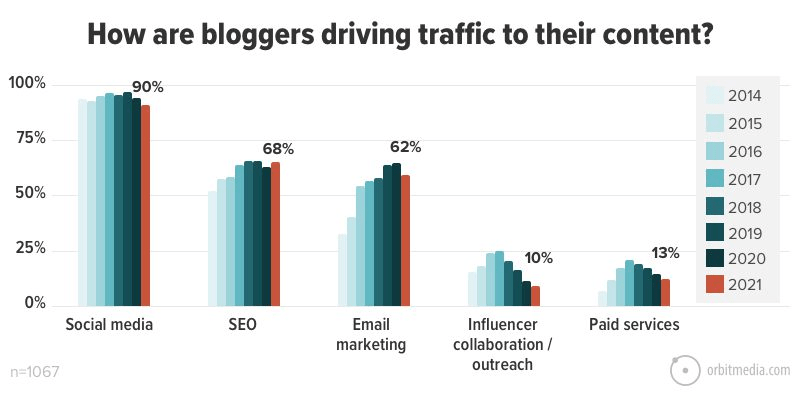
Creating educational content is another way of ensuring you provide value for consumers. If you consistently provide valuable information, you will become a trusted source.
TikTok, Instagram, and YouTube are excellent platforms for educational videos. Try to keep these kinds of videos short and use inclusive language to avoid alienating sections of your target audience.
Also, engage with your audience. Don’t be the brand that just speaks to its audience. Be a conversational brand that takes the time to interact with its audience on social media.
In closing
Although social media does not directly impact your SEO, it should be part of your SEO strategy. The significance of this indirect relationship becomes apparent when examined more closely.
Social SEO has been proven to bring more traffic to your site. Also, social media posts tend to appear in search results. Therefore, creating a robust social media strategy gives your social media accounts and posts a chance to appear on the search engine results pages.
Social SEO also aids your branding initiatives. It builds brand awareness, improving branded searches and the efficiency of your overall marketing campaigns. This helps to establish your place in the market as an authority.
So, why not get social and implement an effective marketing campaign for your brand? Other businesses are already doing it and reaping huge benefits.
Author Bio:

Jon is the founder of two successful e-commerce and SaaS businesses. He’s passionate about sharing what he has learned from working with business owners through Venture Smarter.